Bettas are a favorite among first-time hobbyists. Their dramatic tails and striking colors make them a gorgeous addition to any family.
Their ability to survive in rather minimal conditions have led to many myths and misconceptions over their true ideal conditions.
Are you able to tell fact from fiction?
What kind of Water can you use for a Betta fish?
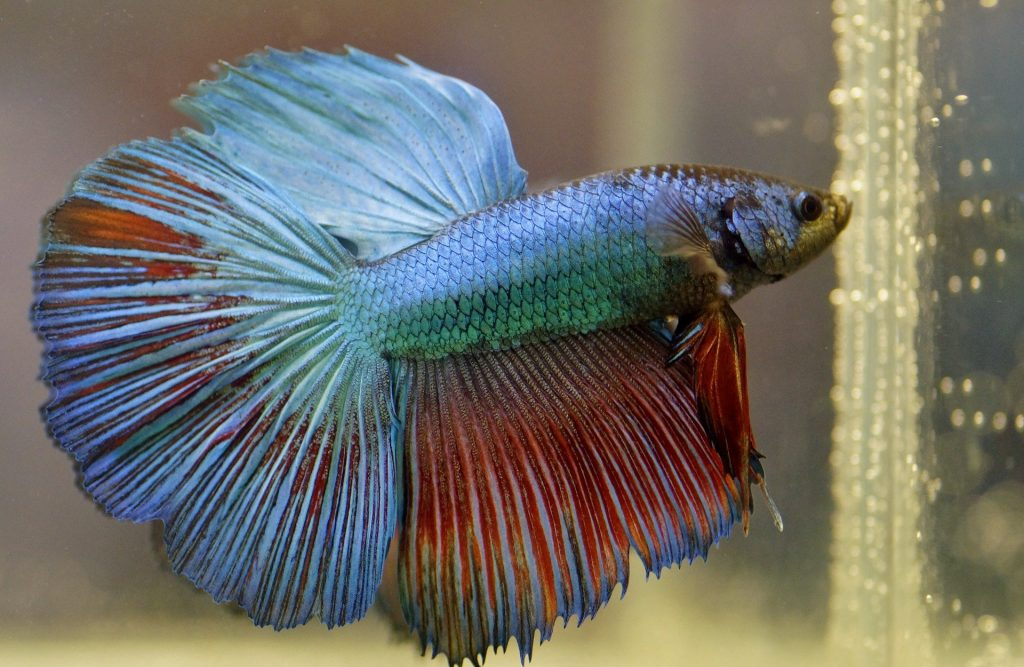
If you are an experienced aquarium hobbyist, you will find that Bettas require much easier conditions compared to some other fish.
While they are considered hardy by expert standards, a novice may find all of the information a little overwhelming.
You will find that once you get the hang of it, maintaining an aquarium can be an enjoyable experience.
There are some basic things that you need to know before setting up any aquarium.
Tap Water: Can Betta Fish Live in Tap Water?

Taking water directly from the sink is a rookie mistake. While some fish are hardy enough to survive straight tap water, this isn’t a risk you should take.
There are two main reasons for this. The first involves the chemical properties of the water.
Water from your sink is treated with chlorine and often contains heavy metals. The exact composite of your water will vary by region.
What is does will also vary.
The biggest concern is the fish’s direct wellbeing. Just as chlorine burns our eyes in the pool, it is rather corrosive to fish.
It can irritate the gills, eyes, and mouths. Then, when it enters the body, it can continue to harm.
This doesn’t mean the water from your sink is unusable in an aquarium. There are several solutions to this problem.
You need to dechlorinate the water from your sink before you can use it.
1. Let the chlorine dissipate

- When the water has been sitting out for some time, it will naturally dissolve and no longer pose a problem.
- This is because chlorine is air soluble. Several factors impact how long it takes.
- 24 hours is a safe estimation but can be more or less depending on sun exposure and volume.
Advantages:
- Easy and inexpensive
Disadvantages:
- Takes up space, somewhat unpredictable, doesn’t work with all hazardous chemicals sometimes found in tap water (such as chloramine)
2. Boiling the water
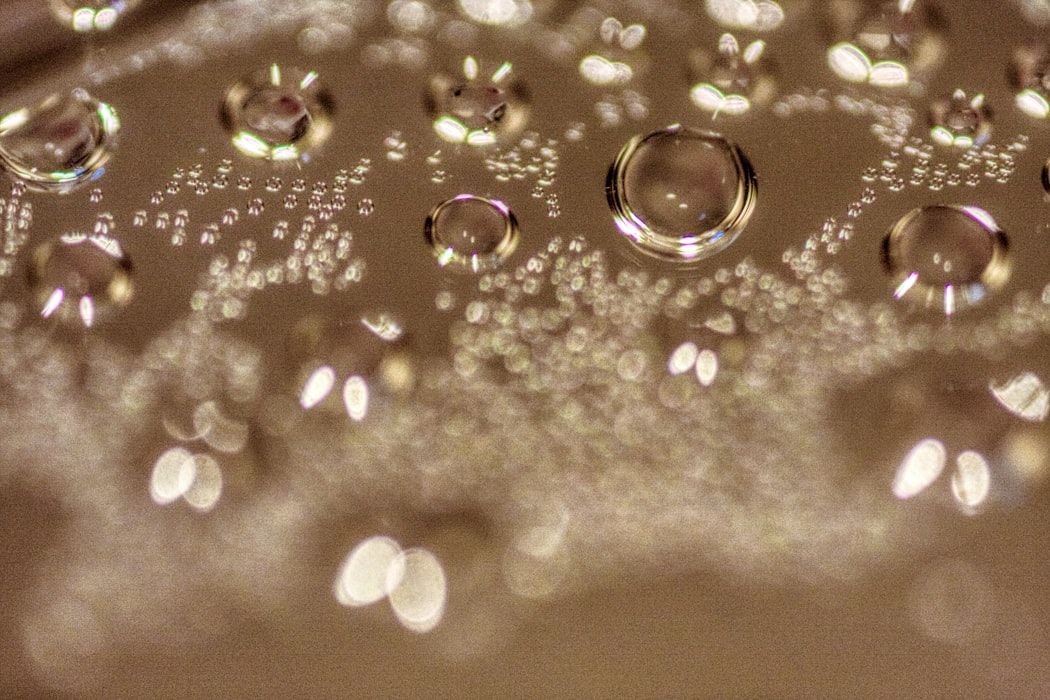
You can also just boil the water on your stovetop. It’s rather straightforward.
As soon as you have the water physically bubbling, keep it going for 20 minutes.
Be sure to let the water cool down afterward, so you don’t burn your fish.
Remember, the water temp for Bettas should be on the warmer side (78°-80°F), but not literally boiling.
Advantages:
- Kills additional things (such as potential bacteria and chloramine) and free.
Disadvantages:
- It can be very time consuming (it may take several pots and a while to let it cool).
3. Invest in a carbon filter
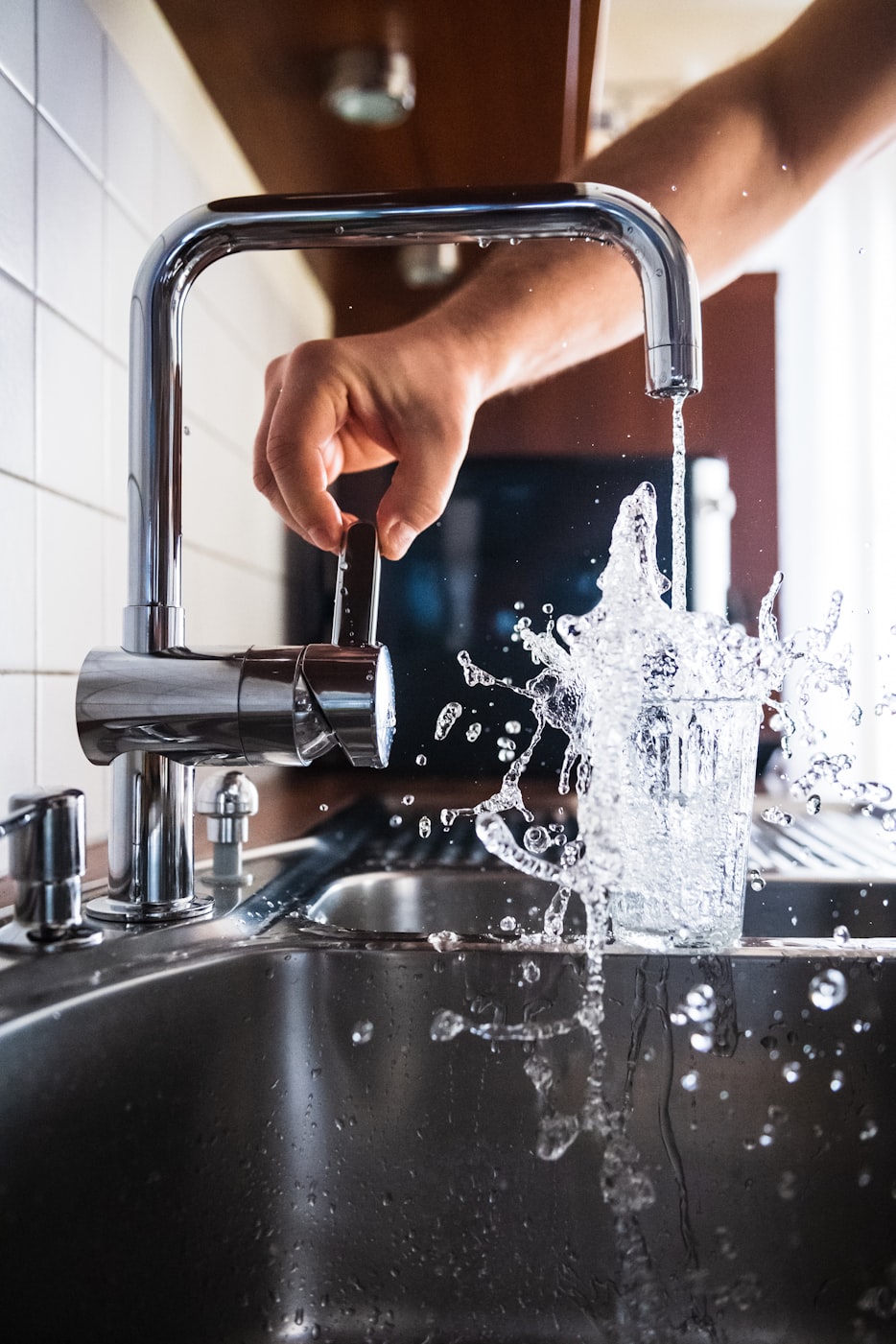
Carbon filtration systems are rather popular in aquariums. Chances are, you will be using one on your tank.
Activated carbon helps filter out a lot of harmful substances.
When setting up a tank, you can actually rely off of the carbon filter to clean the water before you add fish.
For water changes post-fish introduction, you will not be able to rely off of these tank filters to keep your water purified.
Some enthusiasts have taken these systems a step further by installing these filters on their faucets (or sometimes directly into plumbing systems).
This can be incredibly useful if you have huge tanks (and limited space to leave water sitting out).
With these attachments, you can put the water directly into the tank.
This is a lot of effort for a single Betta, but a good idea if you have several tanks.
Advantages:
- Fast and convenient. Effectively removes both chlorine and chloramine.
Disadvantages:
- Expensive.
4. Water conditioner
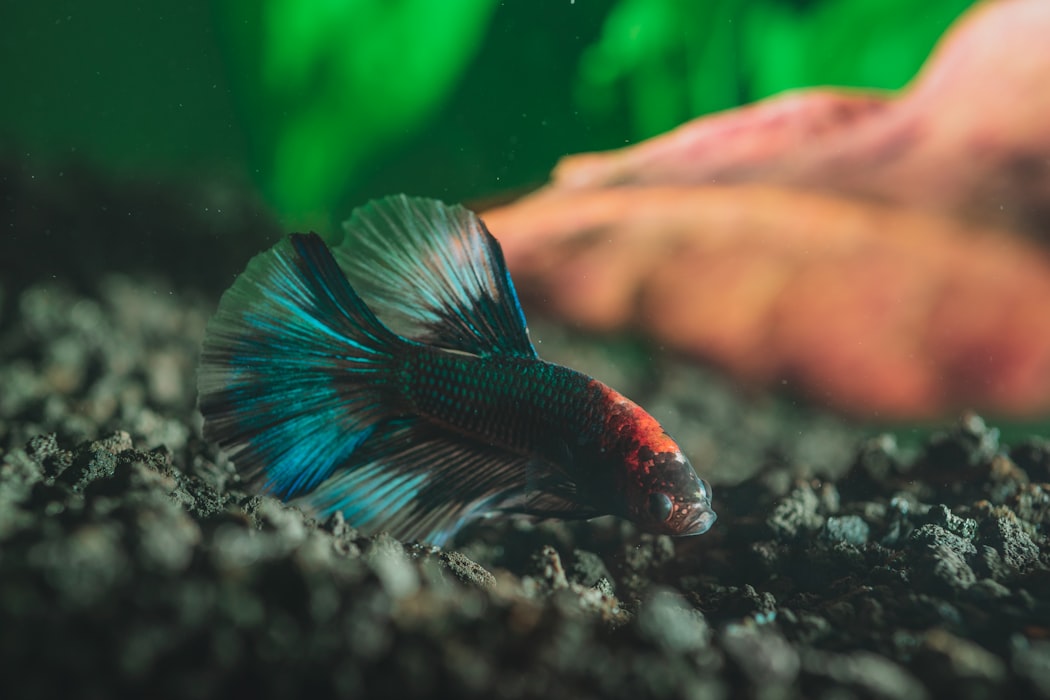
A water conditioner is one of the more recommended solutions for aquarium enthusiasts. It is a liquid specially formulated to kill the toxins in tap water immediately.
Simply take out the Betta, mix in the new water and add a drop for every gallon (unless otherwise instructed). You can add the fish back directly.
There are several kinds of conditioner you can purchase.
There are major differences between some of them (specifically comparing saltwater and freshwater conditioners).
You really don’t need to worry when it comes to Betta water conditioner vs. regular freshwater fish conditioner.
Generally, the formula for all conditioners targeting freshwater fish is rather similar (but Betta water conditioner bottles often come in smaller sizes).
Advantages:
- Easy, fast, and inexpensive.
Disadvantages:
- Adding too much can affect the Betta’s health.
Bottled/ Spring Water: Can you use Bottled Spring Water for Betta Fish?

One of the greatest advantages of Bettas is its tiny requirements. Although they should be in at least a 2.5-gallon tank, this is still relatively small.
If you don’t want to go through the hassle of prepping the water yourself, you can buy spring water for Betta fish.
It looks just like the plastic bottles you buy to drink out of -just with a picture of a Betta on it.
Springwater is good for fish as it undergoes a process that purifies the water without eliminating all of the minerals in it.
Although it is probably safe to use some of the water that you drink, the best-bottled water for Betta fish is the ones found in a pet store.
They are labeled directly and formulated specifically with aquatic life in mind.
Advantages:
- No calculations or waiting needed.
Disadvantages:
- Need to get new bottles for every water change. It can be expensive and inconvenient for large tanks. Also not very eco-friendly.
Distilled Water: Can you use Distilled Water for Betta Fish?

With all of these instructions, you may wonder if distilled water is the safest option.
Distilled water refers to water which was heated up and bad into steam then made into water again.
This is the kind of water that is used in irons or in ice cubes to give a “purer” flavor.
While this water is, indeed, free of the harmful chemicals, it is also free of helpful minerals.
This is why distilled water is not safe for Bettas. Without the natural minerals in there, it makes for unhealthy water to live in.
It can also destroy the stability of water chemistry. You may notice a spike in pH levels (or a secondary spike in ammonia due to the kill-off of healthy bacteria).
Although some people use this to reduce the hardness of water, you should never fill your tank with this water.
Even using this in a regular water change can have a detrimental effect on your tank’s water levels.
Well Water: What About Well Water for Betta Fish?

Finally, you can try the water you already have.
If you live in a city or know you use reservoir water, this method won’t work for you.
Some wells are the perfect source for purified water for your Betta.
This is because you are getting water drilled from directly underground that doesn’t always undergo the same treatment process other water sources do.
Just because this water is more “natural” doesn’t mean it is completely safe.
Unfortunately, you will not know until you get the water tested yourself.
If your well water turns out safe -you can use the water directly from your tap with no problems.
If it does contain something that might harm your fish, you need to have a backup plan prepared.
Advantages:
- If your test comes back clean- you can use water directly from your faucet.
Disadvantages:
- You need to get it specially tested (often with more advanced water chemistry tests). If it comes back unpurified, you need to figure out a different method.
What is the Best Water for Betta Fish?
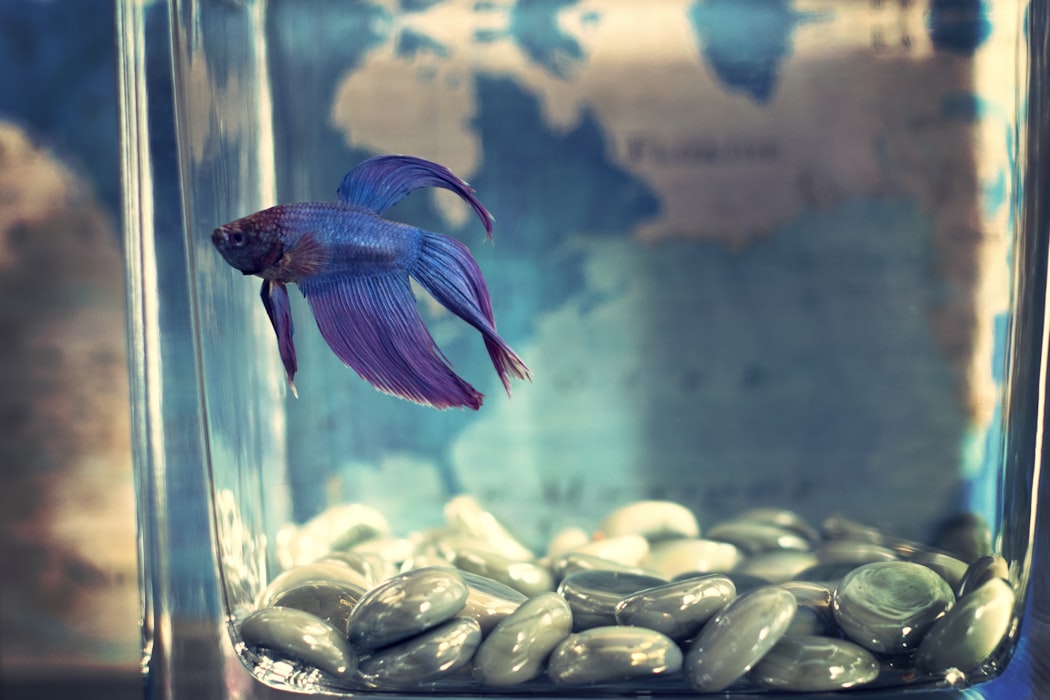
You can set up your tank using any of the above methods.
While it is best to use a method that takes out both chlorine and chloramine, the biggest factor is what works for you.
Most people prefer to use the water conditioner or bottled Betta spring water because of how convenient they are for small water changes.
Just keep a few points in mind;
– You don’t have to use the same technique every time.
– This is not the only factor in what makes water healthy for a Betta.
– Water levels can fluctuate.
– You will need to repeat the process with every water change.
Does Betta Fish Water Need to be Changed Even with a Filter in the Tank?

Water changes, in general, can be a bit of a hassle. Tiny tanks also get dirty fast, so they need to be rather regular.
Having a good filter in the tank will reduce the number of water changes you will need to perform.
It helps keep the water clean and make toxins less dangerous.
Note that this doesn’t get rid of them altogether.
Do Betta Fish Need a Filter to Clean the Tank Water?

You have noticed a lot of discussion about water changes. If the tanks are so small, are filters even necessary then?
Although Bettas can certainly survive this way, it is better to have a filter.
Filters clean water and help create a stable microorganism community.
They are needed to help your fish thrive rather than just survive.
Do Betta Fish Need Special Water?
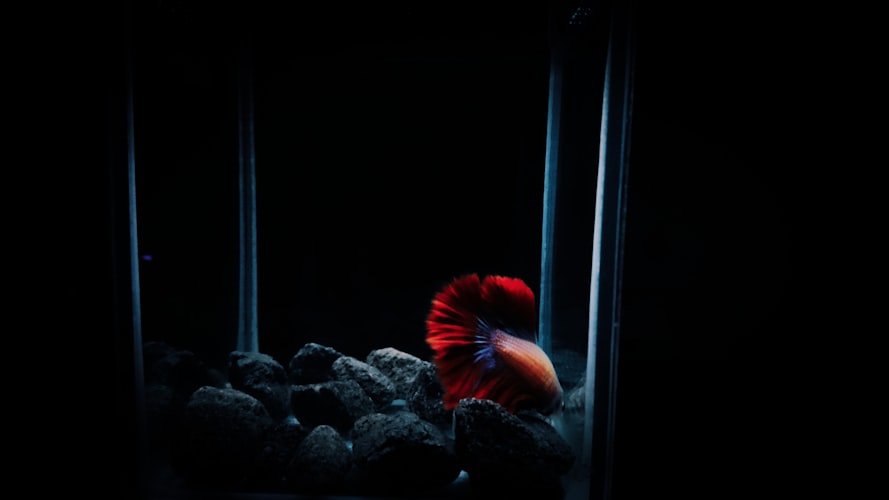
Suitable Betta fish water is more than just “filtered” and “dechlorinated.”
The perfect conditions for a Betta fish should follow their natural environments. Note that allbreeds of Betta share the same preferences.
You can use aquarium testing kits to find out the water levels of your tank.
Some pet stores also offer free testing when you bring in a small water sample.
Consider the following guidelines when monitoring your Betta’s tank or questioning potential tankmates.
Temp: 78°-80°F
Make sure to use an appropriate heater.
Especially during the winter months, they can get rather cold.
During the summertime, when the room temperature is adequate -you can shut the heater off to prevent overheating.
Also, be sure to monitor the temperature if they are in direct sunlight.
pH: Neutral (~7)

pH is something that is a little difficult to control (but normally it shouldn’t be too much of a problem as tap and pre-bottled waterfalls within the safe limit).
If you need to adjust it, you can use some natural things such as moss or driftwood.
Special solutions are also available at pet shops.
Ammonia/ Nitrites: As close to 0ppm as possible

This is a direct product of fish waste or decaying food.
If the levels are too high, perform an immediate water change.
Any level above 0 can harm fish.
Regular water changes prevent this from climbing. Also, make sure to clear away uneaten food.
Ammonia is converted into nitrites. Then, this will be converted into nitrates by the bacteria in the tank.
Nitrate: 40ppm or less

A reflection of waste buildup in water (a product of ammonia and nitrates being converted by beneficial bacteria.
Although nitrates are safer than the original substances, you still don’t want too much of them.
To bring these levels down, perform regular water changes.
Betta Water Quality Checklist
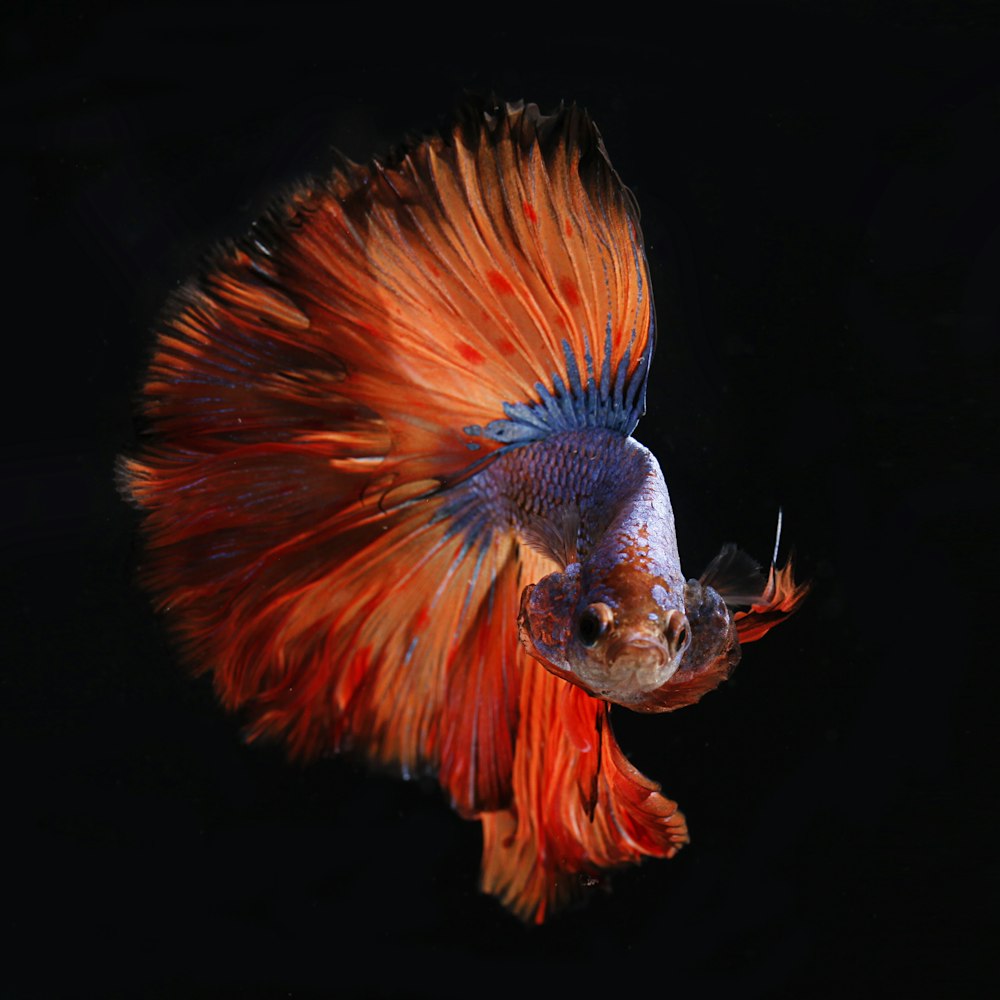
Now that you have a general idea of what is needed for the upkeep of a Betta aquarium, you are ready to begin the set-up.
This comprehensive list contains all the things that are necessary to create a suitable environment for your Siamese fighting fish.
Suitable Aquarium

At least 2.5 gallons (but 5 is ideal).
The size doesn’t matter, but finding filters for bowls is difficult, so rectangular tanks are normally preferred.
Purified Water

Using any of the above methods.
Fill the tank up high enough to cover at least the minimum line needed for the filter and heater to function.
Substrate
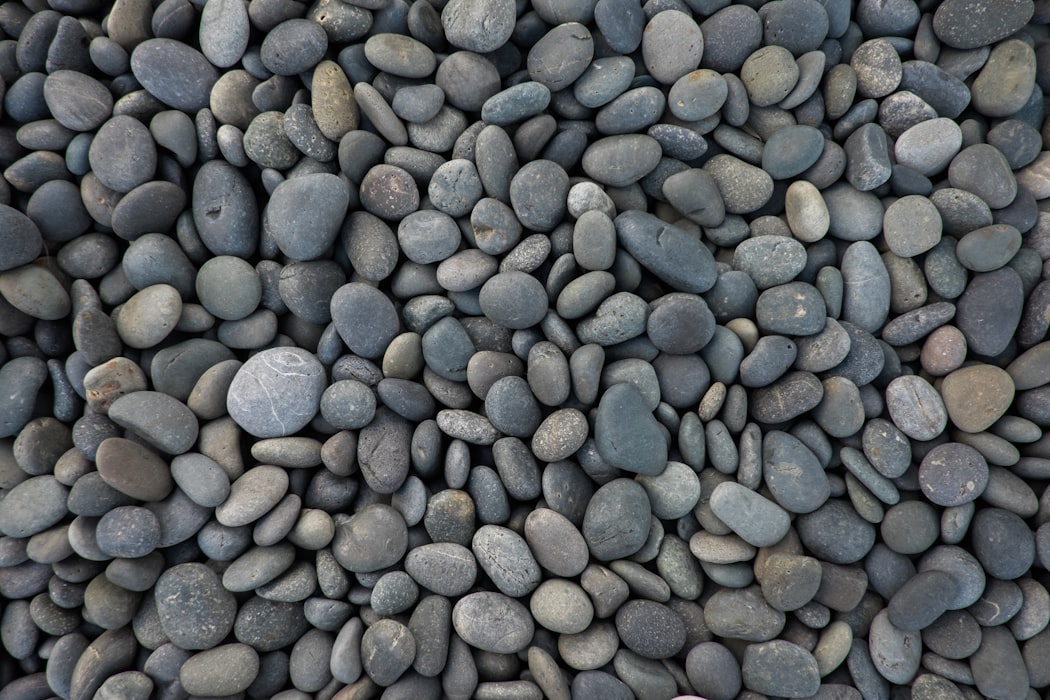
Houses beneficial bacteria -be sure to rinse it first!
1-2 inches is enough. Use any color you want!
You can use gravel, marble, or even sand.
Filter

Any filter will do that fits the tank size, Bettas aren’t particularly dirty.
Since they are a little skittish at times, try to find one that doesn’t make so much noise.
Heater
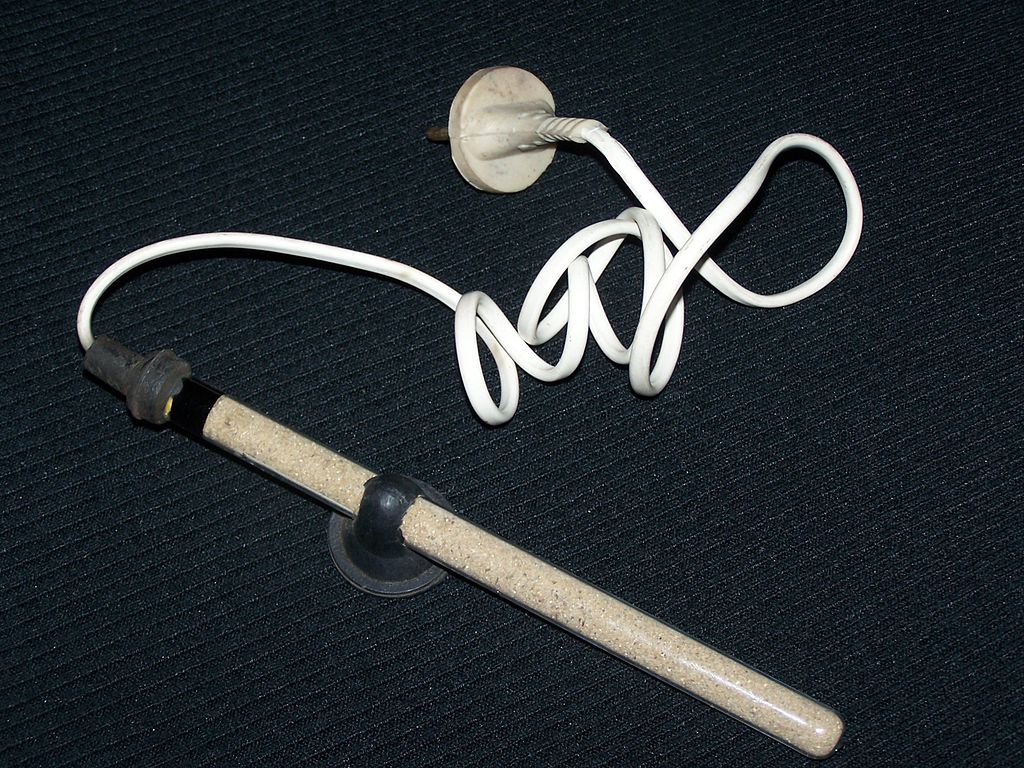
Bettas are from warmer regions in Asia.
Find a small heater that will keep the water between the minimum and maximum temperature for Betta fish (78°-80°F).
If you purchase one of the cheaper heaters that don’t allow for you to adjust the temperature directly, make sure to invest in a thermometer.
Enrichment

Even Bettas get bored.
Although they are not big on a lot of friends, a nice little plant or decoration can make a world of difference to your fish.
Make sure it is appropriate for the fish tank and doesn’t contain toxic chemicals or paint.
Also, make sure to boil it before adding it to the tank to reduce the chances of contamination.
Conclusion
Bringing a Betta into your home is a lot easier than you think. Although the task seems daunting at first, being an aquarium hobbyist is rather simple once you get the hang of it.
Do you have any questions or tips and tricks you want to share? Comment below!


Pingback: Best Betta Water Conditioner Reviews On The Market In 2019